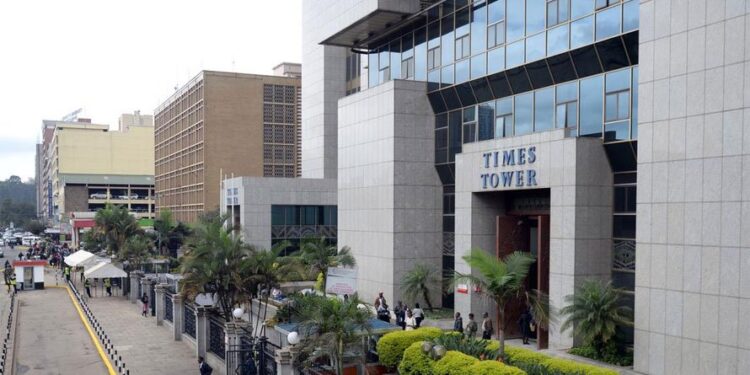
The Kenya Revenue Authority (KRA) will start getting real time data on motor vehicle purchases, property deals and real estate investors seeking electricity meters after integrating its system with other agencies in a high-tech war against tax cheats.
The taxman is integrating its system with third parties like Kenya Power, National Construction Authority (NCA), the National Transport and Safety Authority (NTSA) and other agencies for speedy access to data on taxpayers’ spending patterns.
Car purchases, construction contracts and register of landlords seeking electricity bill meters for their premises will be viewed instantly by the taxman, removing the hurdle of making requests to third parties for the information.
KRA wants to match spending by wealthy Kenyans with the income they have declared to the taxman in its new strategy aimed at unearthing individuals whose lifestyles are not in tandem with the taxes they pay.
“KRA is undertaking system integrations with relevant institutions to facilitate faster access to data,” said Elizabeth Meyo, KRA commissioner in charge of domestic taxes.
The taxman says a sharp increase in imports of luxury items and multi-million-shilling investments in real estate has revealed a potentially massive tax leakage, which if tapped could yield billions of shillings in additional revenues to the Exchequer.
The taxman’s argument is supported by the fact that only a few Kenyans have officially registered as belonging to the high-income earners’ bracket despite the massive growth in conspicuous consumption in areas such as Nairobi.
A tie-up with the National Environment Management Authority (Nema) will reveal individuals seeking regulatory nod from the watchdog for megaprojects, which would reflect their financial muscle.
Ms Meyo said the move, which will involve real-time access to information about taxpayers, would boost tax collection efforts by using data.
Data from the Kenya Civil Aviation Authority (KCCA) will reveal individuals who own helicopters and light aeroplanes
Instant car registration details will be used to smoke out individuals who are driving high-end vehicles but have little to show in terms of taxes remitted.
Kenya Power meter registrations are helping the taxman identify landlords, some of who have been slapped with huge tax demands.
The taxman is using meter locations to tell where the properties are situated while the level of electricity consumption is used to estimate the size of the rental property. The defaulters are then effectively roped into the tax base. A recent wealth report showed that Kenya had about 356 billionaires, placing the country at number four in a ranking of top African countries based on the super wealthy persons. The AfrAsia Bank report says these individuals have net assets worth above $10 million (Sh1 billion).
The taxman says these figures show a clear mismatch between actual wealth in the hands of individuals and what they have officially declared via their annual tax returns
Kenya is known to have a large group of super-rich individuals, who have hidden their wealth in trusts and a web of companies so as to evade taxes.
Some 50 police officers from the Directorate of Criminal Investigations (DCI) have been seconded to KRA to intensify investigations into tax defaults.
The taxman is racing to bring more people into the tax brackets and curb tax cheats and evasion in its quest to meet revenue targets that it has persistently missed in recent years.
KRA is also seeking taxpayers to pay their rightful share of taxes, especially business people.
By end of June next year, businesses will be expected to have installed new electronic tax registers connected through the Internet to KRA’s systems, allowing it to monitor all transactions real-time.
All businesses that have an annual turnover of at least Sh5 million are by law required to have electronic tax registers.
Under the new system, the taxman will receive sales data from all registered companies and traders on a daily basis.
“There is an ongoing implementation of the Tax Invoice Management System (TIMS), which upon rollout, shall enable KRA to have visibility of all business transactions on a real-time basis,” Ms Meyo said.
“Upon full roll-out in 2020, TIMS shall enable the prepopulation of the VAT return,” she added.
Kenya’s tax revenues for the year to June rose 9.6 percent compared to the previous year to Sh1.49 trillion, but KRA still missed its collection target by Sh91.2 billion due to sluggish corporate earnings, reduced economic activity and a freeze on hiring amid job cuts.
This has left the KRA and the Treasury under huge pressure to widen the tax net and clamp down on cheats amid growing expenditure needs, especially from county governments.
The authority has hired a team of auctioneers to help it track properties of individuals and companies who have failed to pay the tax due.
The taxman told Parliament that the property auctions will help clear mounting tax arrears — which stood at Sh192 billion in June 2017.
Vehicles, land, homes, office blocks and work place equipment will be on the KRA radar at a time the taxman has stepped up the war against tax cheats.
Kenyan Business Feed is the top Kenyan Business Blog. We share news from Kenya and across the region. To contact us with any alert, please email us to [email protected]











